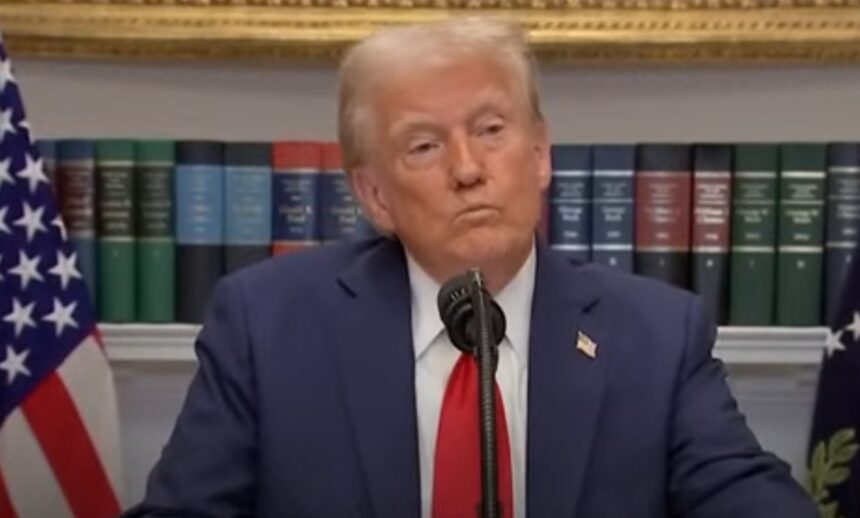In a tragic and controversial turn of events, Matthew Huttle, a 42-year-old Indiana resident, was fatally shot by a Jasper County sheriff’s deputy during a traffic stop on January 26, 2025. This incident has drawn significant attention due to Huttle’s recent presidential pardon from Donald Trump for his involvement in the January 6, 2021, Capitol riot. The circumstances of Huttle’s death, combined with his troubled yet politically charged past, have sparked intense public discourse about law enforcement practices, presidential clemency, and the broader implications of his story.
Matthew Huttle first came into the national spotlight as one of the many individuals charged for storming the U.S. Capitol during the infamous January 6 riot. Pleading guilty to entering a restricted building, Huttle served six months in prison for his role in the insurrection. His actions on that day, seen by some as an attack on democracy, became emblematic of the divisions within American society. Despite his criminal record, Huttle maintained his loyalty to former President Trump, aligning himself with the ideologies of the MAGA movement.
Huttle’s life took an unexpected turn in January 2025 when he received a presidential pardon from Donald Trump. This sweeping act of clemency, which included approximately 1,500 individuals, was met with widespread criticism. Many viewed the pardons as an undermining of accountability for the Capitol riot, while Trump’s supporters celebrated them as a correction of what they perceived as political persecution. For Huttle, the pardon offered a chance at a fresh start—a clean slate to rebuild his life and distance himself from the shadow of his past.
However, Huttle’s newfound freedom was cut short during a routine traffic stop in Jasper County, Indiana. Authorities have yet to provide detailed information about why Huttle was pulled over, but the encounter quickly escalated into a fatal altercation. According to initial reports, Huttle was found to be in possession of a firearm, and an altercation with the deputy ended with him being fatally shot. The officer involved has since been placed on paid administrative leave, a standard protocol during such investigations, while the Indiana State Police conduct an inquiry into the incident.
The details surrounding the fatal shooting remain murky, leaving many unanswered questions. Why did the traffic stop escalate to such a deadly outcome? Was Huttle’s possession of a firearm a contributing factor, and was the use of deadly force by the officer justified? These questions have fueled widespread debate, with critics demanding transparency and the release of body camera footage to shed light on what transpired. Huttle’s death has also reignited discussions about the responsibilities of law enforcement during routine encounters, with advocates for police reform pointing to this case as an example of the need for enhanced de-escalation training and non-lethal methods of conflict resolution.
The discovery of a firearm in Huttle’s possession adds a layer of complexity to the case. While Indiana law permits many individuals to carry firearms, the combination of Huttle’s criminal history and the high-stakes nature of the stop has led to speculation about whether he posed an immediate threat to the officer. The investigation will need to determine whether Huttle’s actions justified the use of deadly force or if alternative methods could have resolved the situation peacefully.
For Huttle’s family, the news of his death has been devastating. In a public statement, they expressed shock and grief, describing Huttle as a man trying to turn his life around after being granted a second chance through Trump’s pardon. They have called for a thorough and impartial investigation to uncover the truth and ensure accountability for the circumstances of his death. For his supporters, Huttle’s story is one of redemption cut short, while critics point to his past actions as a reminder of the Capitol riot’s lingering impact on American society.
Huttle’s death has also cast a renewed spotlight on Trump’s controversial pardons. Critics argue that these pardons sent a dangerous message, undermining the rule of law and emboldening individuals who engaged in unlawful behavior on January 6. Supporters of Trump, however, view the pardons as a corrective measure against what they perceive as an overreach by the justice system. Huttle’s tragic end has added a new dimension to this debate, as questions arise about whether his past played a role in how he was treated by law enforcement during the fatal encounter.
The incident has also amplified broader discussions about police practices in the United States. Traffic stops are among the most common interactions between civilians and law enforcement, but they are also fraught with risks. Studies have shown that these encounters often escalate due to misunderstandings, perceived threats, or inadequate de-escalation techniques. Huttle’s case has become a flashpoint for activists calling for greater accountability and transparency within law enforcement, particularly in high-stress situations that have the potential to turn deadly.
As the Indiana State Police continue their investigation, the release of body camera footage, eyewitness accounts, and forensic evidence will be crucial in piecing together what transpired during the traffic stop. The findings will not only determine the fate of the involved officer but could also influence broader conversations about law enforcement reform and the legal and moral implications of presidential pardons.
Matthew Huttle’s life and death paint a complex picture of redemption, controversy, and tragedy. His role in the Capitol riot made him a symbol of the political and societal divisions in America, while his pardon by Trump underscored the contentious nature of executive clemency. His untimely death has now become a catalyst for renewed debates about justice, accountability, and the interplay between politics and law enforcement.
For his family, friends, and supporters, Huttle’s death is a painful reminder of the fragility of second chances. For critics, it is a cautionary tale about the lasting impact of actions that undermine the democratic process. As the nation awaits the results of the investigation, one thing is certain: Matthew Huttle’s story will continue to be a touchstone in discussions about justice, forgiveness, and the challenges of moving forward in a deeply divided society.






